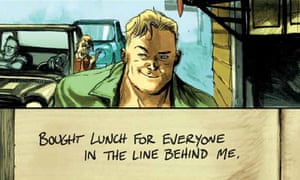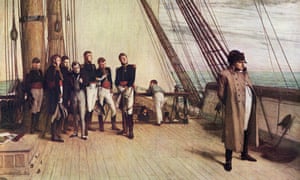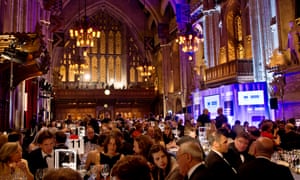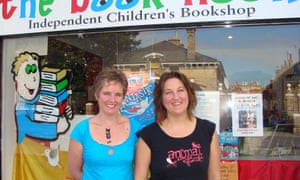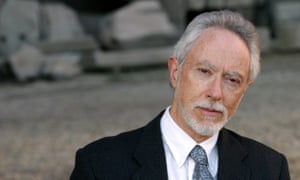Alexander Hamilton’s story is ripe for fictionalization, as Broadway fans and pop culture obsessives know from the success of Lin-Manuel Miranda’s Tony-winning musical, Hamilton. But the founding father’s life is re-written once again in Elizabeth Cobbs’ forthcoming novel, The Hamilton Affair, out August 2.
The Hamilton Affair unspools the love story between Hamilton and his wife, Eliza Schuyler Hamilton — including Hamilton’s famous affair with Maria Reynolds, a storm Alexander and Eliza were eventually able to weather. In an exclusive excerpt below, Alexander confesses his impoverished upbringing to Eliza:
Excerpt from The Hamilton Affair by Elizabeth Cobbs
Alexander looked over at Eliza. The candlelight cast ribbons in her shiny chestnut hair, and the skin of her cheek looked velvety. She was knitting a glove for a wounded drummer boy she had befriended at the hospital. Eliza collected strays— homesick soldiers, orphaned kittens, one-legged veterans, shy spinsters, and so on. When he tried to kill a spider for her, she insisted on delivering it unharmed to the barn on a twig.
“What do you mean that our currency problem is an illusion, Colonel Hamilton? If that’s so, why does a bushel of corn now cost six times what it did two months ago?” Eliza Schuyler’s uncle was nearly apoplectic. Doctor Cochran held his pipe away from his teeth. It had gone out. “And those reprobates in New York! Give them more money? Are you mad?”
Doctor Cochran couldn’t grasp the fact that lack of confidence in the money supply drove down the currency’s value. America needed a national bank to put its house in order. It took a fistful of Continentals to purchase what one dollar bought a year earlier.
Alexander had tried to explain the concepts he learned in Malachy Postlelthwayt’s Universal Dictionary of Commerce. But as often happened, stubborn assumptions impeded comprehension. In Alexander’s experience, prejudice and ignorance were the brick and mortar of men’s prisons. Say “bank,” and otherwise sane gentlemen foamed at the mouth and started barking. He knew with scientific certainty what would save their revolution from economic collapse, but he might as well teach Greek to the Cochrans’ Scottish terrier.
Alexander had been courting Eliza Schuyler for nearly a month. He had visited the Cochrans’ home almost every evening since the skating party. Each time he came away more bewitched by the pretty young woman whose goodness was a balm on all his scars and whose lack of guile he found fascinating. If she tried harder to ensnare him, she would be easier to resist.
“She doesn’t have an ounce of vanity,” he told James McHenry, the stout Irishman who had joined Washington’s military family. Alexander refrained from discussing Eliza with Tench Tilghman. The suave Southerner menaced all his plans. “I don’t believe she has any idea how pretty she is.”
“Then you’d better decide how you feel before the lass finds out,” McHenry said, “or she’ll take aim for bigger game.”
Alexander found her family endearing—especially the witty, mischievous Angelica, who had arrived in Morristown with her English husband—but after a time, he wished he could drown all of them. He wanted Eliza alone. On this particular evening, Doctor Cochran might have retreated into his study had Alexander not foolishly started spouting his economic theories. He could kick himself.
“Uncle John,” Eliza said without flagging in her knitting, “tell us about your research on smallpox inoculation. Have you submitted your notes to Mr. Franklin’s Philosophical Society?”
His niece’s query brought a wrinkle to Doctor Cochran’s brow. “No, it seems there’s never enough time.”
Eliza wore a simple burgundy gown that showed her slender but voluptuous figure to superb effect in Alexander’s eyes: white neck revealed, bosom suggested, waist and hips a swirl of delicious, satiny curves.
“How fortunate that you were able to leave the hospital early today,” she said.
“That’s an excellent reminder, my dear.” He set down his cold pipe and turned to Alexander. “Would you indulge me, Colonel? I have a bit more time than usual to rummage in my papers. I ought to use it to advantage.”
“Of course, sir.”
Once the doctor had left, Alexander crossed the quiet parlor to examine Eliza’s handiwork, or so he pretended. He took the seat next to her and picked up a glove she had just finished. Perhaps
the next pair would be for him. If he was lucky. If she didn’t turn away aghast.
“How do you know how large to make the gloves?”
Eliza smiled up at him. Alexander felt he could swim in her dark eyes.
She held up her right hand. “I just placed my palm against Private Brady’s. I saw how much bigger his was than mine, and knitted accordingly.”
“Don’t tell me you’re holding hands with our drummer boy.” Alexander felt a stab of jealousy. “Your charms might induce heart seizure, and we can’t afford any more casualties.”
Eliza smiled as she resumed knitting. “I believe you’re jealous, my dear colonel. That’s exactly how I size mittens for my younger brothers.”
“I’ll not be jealous if that is how you treat your brothers.” Alexander reached over, took Eliza’s needles, and set them in the basket at her side. “But your kindness induces me to hope for a different place in your affections. I want to know your heart—everything you feel, shady or bright.”
Eliza made no protest when Alexander raised her hands to his lips. He kissed the backs first, then her delicate palms. They smelled of flowers. She caught her breath. He felt his own deepen. Eliza withdrew her hands. He looked at her inquiringly. He couldn’t bear for her to pull away now.
“Alexander,” she said, for they had entered into a first name basis a few weeks earlier, “I’ve no qualifications as a coquette. You mustn’t make love to me as you do girls in town. I’m a country mouse.”
“Then the cities should be leveled. I’ve never met anyone as captivating as you.”
A pink blush suffused Eliza’s face and Alexander felt emboldened to take her hands again. They were so small. He was overwhelmed by the sense that she was defenseless. She had erected no barriers. Only a dress and petticoat shielded her, yet she didn’t draw away.
The desire to possess and protect overwhelmed him. Alexander took a deep breath. He wanted to tell her she would always be safe with him. But first he must know if he was safe with her.
“Please don’t mistake me for a man who woos a different damsel every day,” he said. “I’ll admit I’m ardent, but the Almighty gave me a good heart along with a good head. Before we met, I preferred to die a hero. You make me want to live.”
Alexander swallowed—and then went hollow inside. He hated what he had to say next. The words, the thoughts, the reality were repugnant. He felt as naked as a slave on the block in Christiansted. It took more courage than anything the war had yet required, but he wanted none of the sordid shadows that had ruined his parents. No matter the cost, he must tell her.
“There’s something you should know—and if it causes you to send me away, I promise to bear no grudge. You deserve someone worthy. I’m earnest, but I’m poor. I can’t offer you what men of better birth can.”
Eliza squeezed his hands tightly. Alexander fought the compulsion to crush her in his arms.
“I know all that,” she whispered. “Love is wealth enough.”
Alexander took a deep breath. “My family isn’t like yours.”
She smiled. “I have family enough for two.”
“No. It’s … I’m not what I appear.”
Rancid shame rose in his throat, but he went on. He must tell her the worst. “My parents weren’t legally married. I was born in disgrace.”
Then, as plainly as he could, his eyes fixed on the floor, Alexander told her the terrible tale he had never told anyone else, either because they knew it or because they didn’t. Mama’s dishonor and death, his father’s disappearance, his own illegitimacy.
Eliza didn’t move during the excruciating speech.
“I’m an outsider, Betsey. Always waiting for the moment people find out and despise me as a pretender. My mother was good, but they called her a whore.” He stopped. The word was bitter. “Every man dreams of a son. Under Danish law, I don’t own the name I would give him.” Alexander stared now at the hands she hadn’t yet stolen back. “Forgive me, Eliza.”
The room sounded empty. Only the wind in the pine branches disturbed the silence. Alexander looked up.
Tears rolled down her beautiful cheeks. Alexander couldn’t tell if she wept for his misfortune or because their courtship had ended.
He let go of her hands. There was stern comfort in doing what must be done. He would rather destroy his own future than hers. He’d always known happiness wasn’t his lot in life.
Eliza took her knitting basket off the couch and placed it at her feet. She turned to him and slid her arms around his chest.
Alexander inhaled the intoxicating scent of her thick, glossy hair. Every bit of her smelled wonderful.
Unaware until that instant of the unbearable tension that gripped him, Alexander softened. A lump rose in his throat. He pulled away. It took his last reserve of self-restraint. He met her eyes.
“Are you sure? If people find out, they’ll never let you forget what I am. And what I’m not.”
Eliza placed a finger to his lips, then pressed. “Alexander. I know who you are.” She looked toward the open doorway. “And yes, I’m sure. Why do you think I tricked Uncle John into leaving?”
Alexander stared, then burst into laughter. “You scheming vixen!” He gazed into her eyes. So she wasn’t entirely without guile. “You’re beautiful. You’re perfect.”
He wrapped his fingers around her wrist and pulled her to him. He never wanted to stop kissing her.

